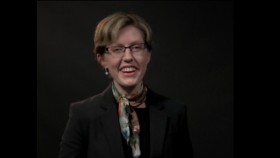The fact of the matter
In our “post-truth” world, where Senator Pauline Hanson isn’t racist, climate change doesn’t exist and President Donald Trump’s inauguration was attended by record crowds, do facts really matter?
Professor Michael Platow from the ANU Research School of Psychology says they do, more than ever.
“What you have in the racism debate, as in the climate change debate, is that both sides have their own facts,” he says.
“The point is that facts themselves are social constructions. We're in an era where the common frame of reference for judging what is a fact and what is not, is disintegrating.
"We need to reconstruct a shared perspective of what are facts. We need a shared set of values and norms to allow us to move forward."
Professor Platow is hoping his research into understanding and reducing prejudice—part of the biggest ever study on the subject—will help do exactly this.
The research study, called the Prejudice Census, asks people to act as "citizen scientists", recording any experiences with prejudice that they may encounter in their daily lives.
"The Prejudice Census will allow us build a better understanding of exactly what people think prejudice is in the first place," Professor Platow says.
"What we need is an analysis of what people believe to be prejudice and how and why these beliefs are changed and maintained."
Influential public figures like Trump, Hanson and the climate change-deniers have only increased the urgency and importance of this research, which is being funded by an ARC Discovery grant.
"Our leaders have reset the norms of what is appropriate," Professor Platow says.
"By our leaders expressing these views, they are setting the norms and showing that it's OK to say these things."
Find out more about ANU research in psychology.










